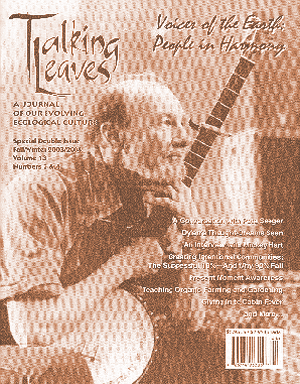 Creating a Life Together:
Creating a Life Together:
Practical Tools to Grow Ecovillages and Intentional Communities
by Diana Leafe ChristianForeword by Patch Adams. 2003, 252 pages.
New Society Publishers, PO Box 189, Gabriola Island, BC, VOR 1X0,
1-800-567-6772,www.newsociety.com
Appreciation.
That is the word that best describes my reaction to Diana Leafe Christian's Creating a Life Together. I had anticipated this book eagerly, especially since I knew that Diana had interviewed two Lost Valley community members extensively while writing it. A communitarian herself, and editor of Communities magazine for the past ten years, Diana seemed the perfect person to put together this guidebook, which is intended to help anyone who is thinking about pursuing the dream of starting an intentional community or ecovillage.


